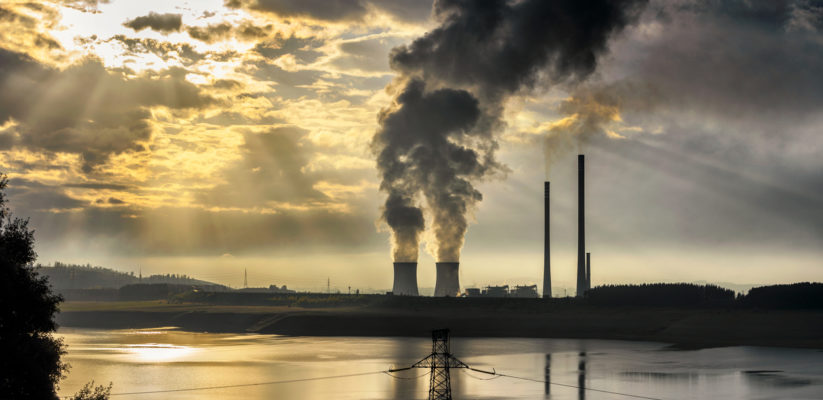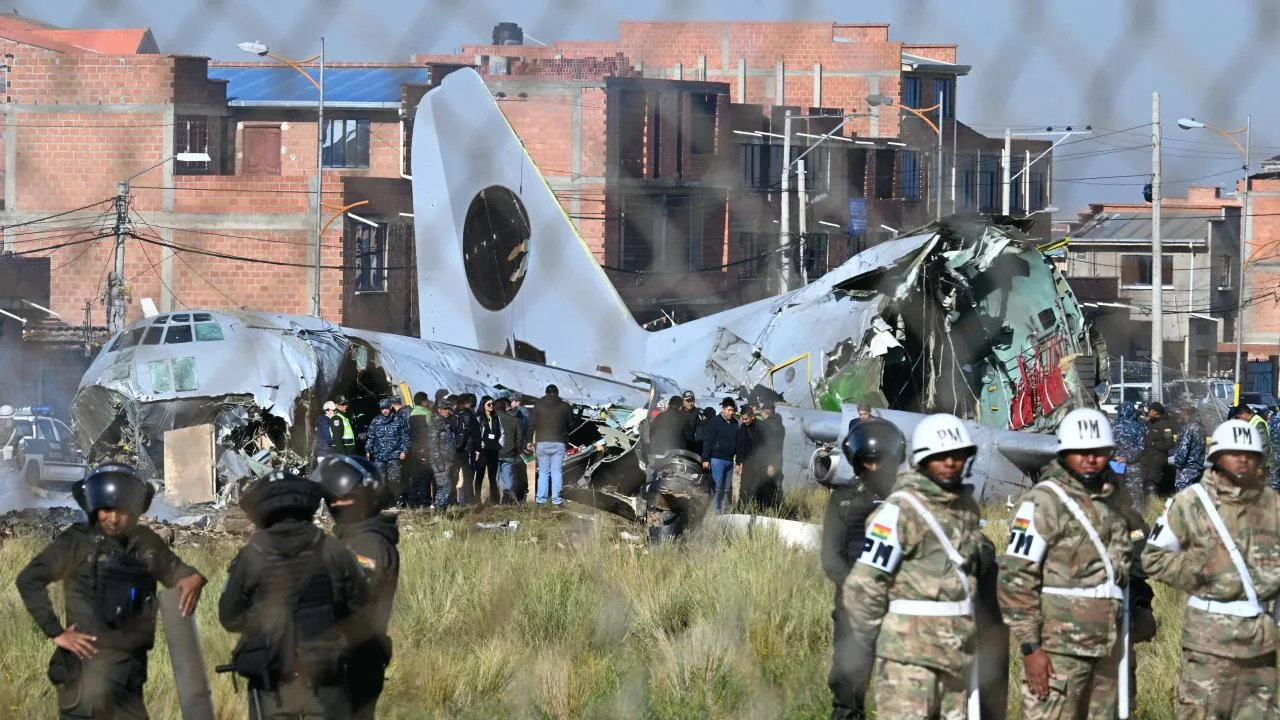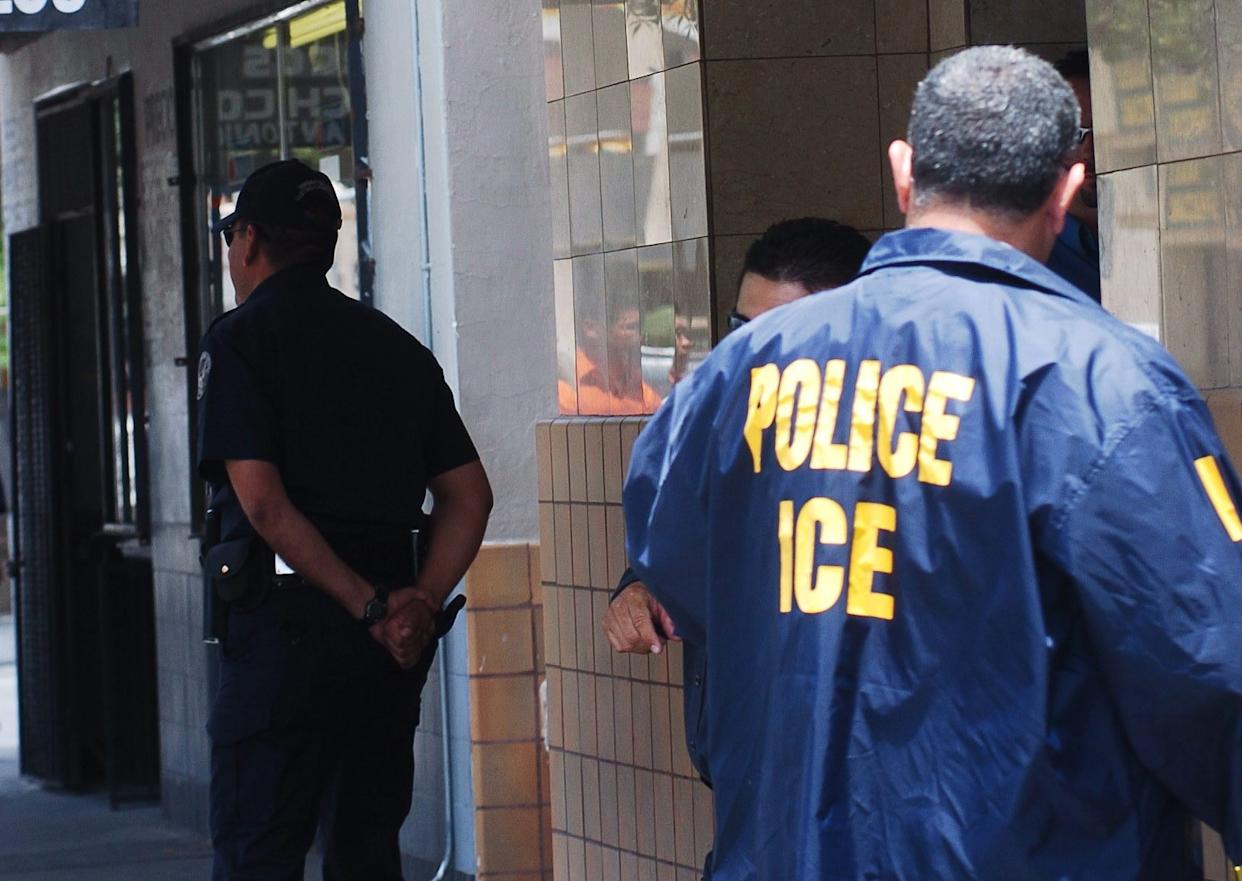International
Climate plans would allow up to 2.6C of global warming: UN

| By AFP | Patrick Galey |
Country climate pledges leave the world on track to heat by as much as 2.6 degrees Celsius this century, the United Nations said on Wednesday, warning that emissions must fall 45 percent this decade to limit disastrous global warming.
The United Nations Environment Programme, in its annual Emissions Gap report, found that updated national promises since last year’s COP26 summit in Glasgow would only shave less than one percent off global greenhouse gas emissions by 2030.
The world has warmed nearly 1.2C since the start of the Industrial Revolution and already faces increasingly ferocious climate-enhanced weather extremes like heatwaves, storms and floods.
The Emissions Gap report examines the difference between the planet-heating pollution that will still be released under countries’ decarbonisation plans and what science says is needed to keep to the Paris Agreement goal of limiting warming to between 1.5-2.0C.
A day after the UN’s climate change agency said governments were still doing “nowhere near” enough to keep global heating to 1.5C, UNEP found progress on emissions cutting had been “woefully inadequate”.
It said that additional pledges made since the COP26 summit in Glasgow last year would not even cut emissions by one percent by 2030.
Failure left the world “hurtling towards” a temperature rise far in excess of the Paris goals, it added.
“It’s another year squandered in terms of actually doing something about the problem,” the report’s lead author, Anne Olhoff, told AFP.
“That’s not to say that all nations have not taken this seriously. But from a global perspective, it’s definitely very far from adequate.”
The report found that in order for temperature rises to be capped at 2C, emissions would need to fall 30 percent faster by 2030 than envisioned under countries’ most up-to-date plans.
To limit heating to 1.5C, the gap is 45 percent.
Under the 2015 Paris deal, countries are required to submit ever deeper emission cutting plans, known as Nationally Determined Contributions, or NDCs.
UNEP found that “unconditional” NDCs — which countries plan regardless of external support — would probably lead to Earth’s average temperature rising by 2.6C by 2100. Scientists warn that level would be catastrophic for humanity and for nature.
Conditional NDCs — which rely on international funding to achieve — would probably lead to a 2.4C temperature rise this century, it said.
All told, current plans are likely to see a five- to 10-percent reduction in emissions by 2030 — a far cry from the drop of nearly 50 percent required for 1.5C.
‘Missed opportunity’
UNEP said that in 2020, carbon pollution fell more than seven percent, largely thanks to Covid-19 lockdowns and travel restrictions. A fall of that magnitude is needed every year this decade to stay on track for 1.5C.
But it said greenhouse gas emissions in 2021 could end up being the highest on record — some 52.8 billion tonnes — because countries threw themselves into fossil-fuelled pandemic recoveries.
“We see a full bounce-back in emissions after Covid,” said Olhoff.
“It’s a missed opportunity in terms of utilising these unprecedented recovery funds to accelerate a green transition.”
Separately, the International Energy Agency said on Thursday it believed global energy emissions would peak in 2025 as surging oil and gas prices spurred a drive to renewables.
But UNEP said that while the switch to greener tech in the power sector was accelerating, several industries were lagging behind in the push towards net-zero emissions.
For example, in the food sector, which is responsible for around a third of emissions, dietary changes and cutting food loss could help reduce the sector’s footprint by more than 30 percent by 2050.
‘Avoid as much damage as possible’
Olhoff said the financial sector was “part of the problem rather than part of the solution” to climate change, with hundreds of billions funnelled annually to fossil fuel projects.
UNEP suggested the introduction of an effective carbon price under a global cap and trade system that would push investors to consider the environmental impact of their portfolios.
It also called for central banks to make more funds available and help create global low-carbon technology markets.
UN Secretary General Antonio Guterres said Thursday’s report showed the world “cannot afford any more greenwashing”.
“Commitments to net zero are worth zero without the plans, policies and actions to back it up,” he said in a video message.
Last year the Intergovernmental Panel on Climate Change said that the world was likely to reach and even exceed 1.5C within decades, no matter how quickly emissions fall in the short term.
Olhoff said that for every year that passed without significant emissions cuts, 1.5C was getting “less realistic and less feasible”.
But she insisted that governments needed to accelerate the green transition to avoid as much damage as possible.
“The more we learn, it’s absolutely clear that we should aim to get (temperature rises) as low as possible,” Olhoff said.
“Even if that means 1.6C instead of 1.5C, that’s definitely better than 2C degrees, just as 1.7C is worse than 1.6C.”
International
Bolivia Orders Three Investigations Into Deadly Military Plane Crash

Bolivia’s Defense Minister Marcelo Salinas announced Monday that three separate investigations will be conducted into Friday’s crash of a military cargo aircraft at El Alto International Airport, near La Paz, which left at least 22 people dead.
The Hercules aircraft, operated by the Fuerza Aérea Boliviana (FAB), was transporting cash intended for the Central Bank of Bolivia when it overshot the runway after landing from the city of Santa Cruz. The plane reportedly traveled nearly one kilometer beyond the airport perimeter.
The incident sparked chaotic scenes, with individuals attempting to collect scattered banknotes. Authorities detained 51 people in the aftermath, and the government declared three days of national mourning.
Multiple Investigations Underway
The first inquiry is being led by a military board from the Bolivian Air Force, which has already taken custody of the aircraft’s black box for analysis.
Minister Salinas said two additional investigations will follow — one conducted by the insurance company and another by the aircraft’s manufacturer.
“At least two more investigations will come, that of the insurance company and that of the aircraft manufacturer,” Salinas said during a press conference in Santa Cruz.
He cautioned that the investigative process could take between three and six months, noting that the black box cannot be opened in Bolivia due to the lack of specialized laboratories for analysis.
Awaiting Official Findings
Salinas stressed that the FAB investigative board is the highest authority in the case and urged the public to wait for its conclusions to avoid speculation about the causes of the crash.
He also confirmed that the government has contacted the families of the 22 victims and the 37 injured, as well as the owners of 15 damaged vehicles, to coordinate procedures with the insurer and cover the corresponding expenses.
International
Mexico Calls for Immediate Probe After National Dies in ICE Custody

Mexico’s Secretaría de Relaciones Exteriores (SRE) on Monday called on U.S. authorities to conduct an “immediate and thorough” investigation into the death of a Mexican national while in custody of U.S. Immigration and Customs Enforcement (ICE) at a processing facility in California.
In a statement, the Mexican government described the death as “regrettable” and urged U.S. officials to clarify the circumstances surrounding the case in order to “determine responsibilities and ensure that such events do not happen again.”
Death at Adelanto Processing Center
According to available information, the Mexican citizen died at the Adelanto Processing Center in California while under ICE custody. Authorities have not yet released the individual’s identity or the cause of death.
Following the incident, Mexico’s Foreign Ministry formally requested “detailed information” from U.S. authorities, including the detainee’s medical records and custody reports.
Consular Assistance Activated
The Mexican Consulate in San Bernardino, California, has activated consular assistance protocols to provide ongoing support to the deceased’s family. Officials have contacted relatives to express condolences and offer legal guidance, as well as assistance with the necessary procedures to repatriate the remains.
“The handling of situations like this and the establishment of mechanisms to resolve them are priorities for the Government of Mexico,” the Foreign Ministry said, adding that it will formally request an investigation into any systemic conditions that may have contributed to such incidents.
Local Mexican media reported that seven Mexican nationals died while in ICE detention last year — the highest number recorded since the agency was created.
International
Anti-ICE Billboard Campaign Targets Immigration Spending in 31 U.S. Cities

More than 200 billboards criticizing U.S. Immigration and Customs Enforcement (ICE) began appearing Monday in 31 cities across the United States, including Miami, as part of a campaign highlighting the high cost of immigration enforcement operations for taxpayers.
The initiative, titled “ICE Costs Us,” was launched by the civil rights organization Mijente and will run for four weeks.
Criticism of Spending and Enforcement Tactics
The billboards feature images of ICE agents during arrests or carrying military-style weapons. According to the organization, spending on military-grade equipment for the agency has increased by 600 percent in recent years.
Several signs display messages such as:
“Your taxes are being wasted” and “ICE’s cruelty costs you $28 billion,” referring to the agency’s annual budget.
In a statement, Marisa Franco, co-founder of the Mijente Support Committee, said:
“For too long, our government has prioritized building cages and investing billions in an immigration enforcement apparatus that has left families torn apart and communities terrified.”
She added that “Millions of Americans are living paycheck to paycheck, yet this violent agency continues operating with a blank check. These decisions do not make us safer nor improve our economic security. Our billboards highlight these choices and demand a different path.”
Budget Debate and Medicaid Comparison
The campaign also draws a comparison between ICE’s funding and the estimated 17 million people who could lose health coverage under Medicaid due to federal budget cuts under President Donald Trump.
Other billboard messages seen in various cities include:
“They get billions to beat us; we get layoffs and rising rents” and “Funding ICE is a fast track to fascism.”
Organizers say the goal is to spark public debate about the allocation of federal funds for immigration enforcement and the broader economic and social impact of such policies on communities nationwide.
-

 International5 days ago
International5 days agoCocaine Production Surges 34% in 2023 as Market Expands into Africa and Asia
-

 International4 days ago
International4 days agoTrump Floats “Friendly Takeover” of Cuba Amid Rising Tensions
-

 International2 days ago
International2 days agoIran Reports 201 Dead, 747 Injured After U.S. and Israeli Strikes
-

 Sin categoría3 days ago
Sin categoría3 days agoTrump: ‘We Think It’s True’ Amid Claims Iran’s Supreme Leader Was Killed
-

 International3 days ago
International3 days agoSecurity Council to Hold Emergency Meeting on Middle East Crisis
-

 International5 days ago
International5 days agoFederal Judge Blocks Trump Policy Allowing Deportations to Third Countries
-

 International4 days ago
International4 days agoArgentina’s Senate Reviews Milei-Backed Labor Overhaul
-

 International2 days ago
International2 days agoPope Leo XIV Urges End to ‘Spiral of Violence’ in Middle East
-

 International14 hours ago
International14 hours agoBrazil’s Supreme Court Rejects Bolsonaro’s Bid for House Arrest
-

 International5 days ago
International5 days agoClinton Accuses Republican Committee of Using Epstein Case to Shield Trump
-

 International14 hours ago
International14 hours agoAnti-ICE Billboard Campaign Targets Immigration Spending in 31 U.S. Cities
-

 International14 hours ago
International14 hours agoTrump Warns of ‘Major Wave’ of Attacks as Iran Conflict Escalates
-

 International14 hours ago
International14 hours agoMexico Calls for Immediate Probe After National Dies in ICE Custody
-

 Central America14 hours ago
Central America14 hours agoPanama Canal Monitoring Trade as Middle East Conflict Disrupts Shipping
-

 International14 hours ago
International14 hours agoBolivia Orders Three Investigations Into Deadly Military Plane Crash




























